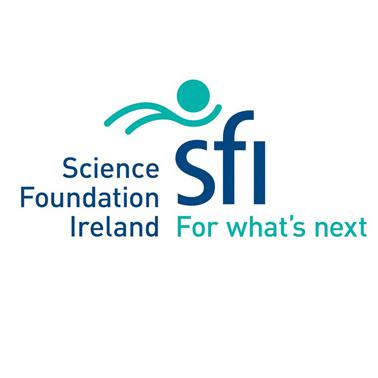
RTÉ and Science Foundation Ireland are now seeking proposals for three one-hour documentaries that have strong, popular science-based themes at heart. Special consideration will be given to proposals that deal with the theme of Ireland in the Digital age and to how technology is impacting on our culture and lives. Of particular interest are subjects like cybercrime and cybersecurity, big data, digital personality and connectedness.
Budgets | €120,000 per hour.
No. of Episodes/Duration | 3 x 60 mins
Transmission | RTÉ One in Autumn, 2016
Please note that proposals that can achieve lower costs per hour will be particularly attractive.
Deadline 5pm on March 14th, 2016.
These proposals should be suitable for transmission in the prime-time schedule on RTÉ One in Autumn, 2016 and should have strong, popular appeal, as well as being relevant to Irish audiences. Proposals can be authored or presenter led but we are not seeking profiles. Proposals should, in all instances, reflect the contribution of science, technology, engineering and maths in contemporary Irish society.
All proposals should be far-reaching in their ambition, using fresh approaches to engage a non-science seeking audience in science conversations. Proposals must be scientifically sound and will require the input of a science professional[s] either in an advisory role or a direct collaboration role. Proposals should clearly indicate the name[s] of the scientific, technological or engineering expert/ collaborators on the projects, the role they will play in the project and confirmations of their involvement.
Proposals are encouraged to demonstrate the scope of the programme to broaden its reach and educational impact through supporting digital accompaniments such as websites, apps, social media for example.
Some of us revel in the personalisation of our internet usage while others fear the idea. We expect connectivity; we expect to have security of our data when making online purchases. Ireland is leading pioneering research in digital areas including what to do with all the digital information we create every day [big data], how everything we use can communicate with each other [the internet of things] and making sense of the digital world so it’s meets each of our individual needs [connectedness and adaptable digital content]. We want to help people understand and enable conversations on these essential elements to this digital age.
To this end, this call will also be supported by a briefing session at Science Foundation Ireland, Wilton Park House, Dublin, on the 10th Feb at 10.30. This session will provide more insight to the RTÉ/ SFI Joint initiative and this particular call. We ask, in the first instance, that producers submit ideas into the eCommissioning system:Click Here under the programme category "Cláracha Gaeilge, Education & Science - Science Documentaries, 2016”
Block error: "Undefined variable: kirby" in block type: "spacer"
In 2015 the Science Foundation Ireland ‘Science in Ireland Barometer’ found that just 48% of the Irish public feel informed of research and developments in the areas of science, technology, engineering and maths [STEM]. The Barometer also found that while almost 90% of the public value the contribution of STEM to our society and recognise the importance of STEM education and research 71% say that these areas are too complex for them to discuss or engage with. [Source - Science in Ireland Barometer]
Technology, science and engineering touch many aspects of daily life in Ireland, from the increased use of smart phones to choices we make about transport to information about our health. Many of the challenges facing the country in the future - including food production, sustainable energy and security issues - will all rely on STEM for solutions. For Ireland to make the right decisions it is essential to engage the public more in the conversation.
Science Foundation Ireland last year agreed a joint initiative with RTÉ in a bid to make science, engineering and technology more accessible to the public through television and digital media content. With the potential of broadcast output to reach wide audiences, this joint initiative will support projects that take pioneering research and developments in Ireland to underpin programmes that have broad appeal.
These programmes should engage audiences by using creative, novel approaches and embedding the science, technology or engineering in real stories.